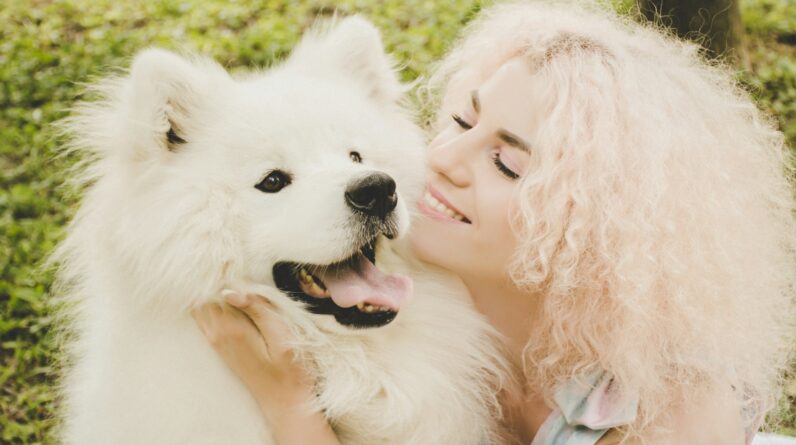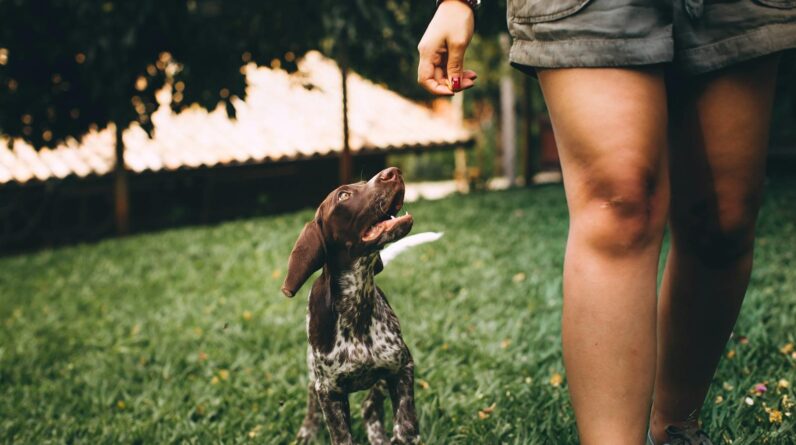
What’s Up with Dogs Barking at Night?
Have you ever been cozy in bed, almost asleep, and then heard a dog barking like crazy outside? It’s like they’re having a secret party, and we’re not invited. But why do they do it? Well, I did some sniffing around like a detective and figured some things out.
They’re Chatting with Friends
Imagine if you could only talk to your friends when it’s dark outside. Kind of strange, right? But for dogs, the night is like their time to send a “what’s up?” message to their doggy friends. They bark to say hello, tell others to keep out of their space, or even just because they’re bored and want some attention.
They Hear Stuff We Can’t
Dogs have super ears. They hear things way better than we do. So when they bark at night, they might be reacting to a sneaky cat walking on a fence or a squirrel jumping in a tree. To them, the little noises we can’t hear are big news.
Guarding the House
Ever pretend to be a superhero, protecting your house or your room? Dogs feel like that a lot. They think it’s their job to guard us. So, when they bark at night, sometimes they’re saying, “Hey! I’m on patrol here. No bad guys allowed!” They want to make sure we’re safe, even if there’s nothing out there.
They’re Not Feeling Great
Just like us, when dogs don’t feel well, they might get grumpy. If their tummy hurts or they’re just feeling yucky, they might bark to let us know. It’s their way of saying, “I need some help over here!”
Bright Lights and Strange Sights
Have you seen how your shadows stretch super long when the light comes from behind you? Well, dogs see those shadows too, and sometimes they think it’s something scary. When streetlights or car headlights shine through the trees, they can make weird shadows. Dogs sometimes bark at these shadows because they’re trying to figure out what they are.
How Can We Make the Nighttime Barking Stop?
So, we know why dogs might bark at night, but what can we do to help them—and us—get a good night’s rest? Here are a few ideas:
- Wear them out: Just like us, dogs need to burn off energy. A good play session before bedtime can make them tired and less likely to bark.
- Check-up time: A visit to the vet can make sure they’re feeling okay and not barking because something hurts.
- Stay calm: When your dog barks, stay chill. If you get upset, it might make them think there really is something to bark about.
- Snug as a bug: Make sure they have a comfy spot to sleep. When dogs are cozy, they might be less likely to wake up and bark.
- Block the noise: Sometimes, helping dogs not hear every little thing can keep them quiet. Maybe a fan or some soothing music can help block out those outside sounds.
Leaning why dogs bark at night can help us get why they’re putting on their late-night concerts. Next time you hear a bark when the moon is up, think about what might be going on in your furry friend’s head. And remember, they might just be doing their best to be a good dog.
Remember, They’re Just Being Dogs
Dogs will be dogs. They bark, they play, and they protect. It’s all part of their charm. At night, the world is different for them, and they react in their doggy way. We might not always figure out the exact reason for every bark, but understanding them a bit better can help us all get along and get some sleep. So next time the barking starts, just take a breath and think about all the small, strange things that might be happening out there in the night. Your dog is just doing their thing, being the good buddy they always are.
Working together to keep their barking to a happy bark level means we can all have peace and quiet. Giving them love, not getting mad, and helping them feel safe are the best tricks in the book. After all, they’re part of the family, and everyone in the family deserves a good night’s sleep, right?
Why does my dog bark more at night than during the day?
There could be a few reasons for your dog’s nighttime barking. At night, it’s quieter, so your dog might hear noises that go unnoticed during the day. They then bark either to alert you or because they’re anxious or excited by the unfamiliar sounds.
It’s also possible that less activity at night means they’re not as tired and have more energy to bark. Making sure they get plenty of exercises during the day can help them settle down when it’s time to sleep.
Can dogs see better at night and does this affect their behavior?
Yes, dogs generally see better in dim light than humans do. Their eyes have a special membrane that reflects light, which helps them see in low-light conditions. This could make them more responsive at night to movement outside that we might not notice.
This enhanced night vision can mean they’re more likely to spot critters or people outside, leading to more barking or alert behavior. Keeping blinds closed or providing a cozy bed away from windows can help minimize distractions.
What are some strategies to calm my dog at night?
A solid routine helps a lot! Try to stick to regular feeding, walking, and bedtime schedules. Dogs thrive on consistency, and knowing what to expect can help them feel secure. Additionally, a bedtime routine that includes calming activities like a gentle massage or soft music can signal it’s time to wind down.
Lastly, make sure they have a comfortable, quiet space to sleep in. A bed with their favorite blanket or a worn shirt that smells like you can be especially soothing for them.
Should I ignore my dog’s nighttime whining or investigate?
If whining is out of character for your dog, it’s wise to check on them. They might need to go out for a bathroom break, or they could be indicating something’s wrong. After addressing any immediate needs, it’s important to not inadvertently reinforce the behavior by giving too much attention.
If the whining continues without a clear cause, it’s a good idea to consider if they’re feeling anxious or need more exercise during the day. If it persists, a vet visit might be needed to rule out any health issues.
What could be causing my dog to pace at night?
Pacing can be a sign of anxiety or discomfort. It might be that something’s bothering your dog in their environment – it could be too hot, too cold, or something might be irritating them. Making their sleeping area comfortable and free from drafts or noise can help.
Another reason could be excess energy. If your dog doesn’t get enough physical or mental exercise during the day, they might have too much pent-up energy at night. Increasing their activity levels might just do the trick to help them settle.
Key Takeaways
- Dogs often bark at night due to factors like external noises, boredom, or feeling anxious. It’s their way of communicating something’s off in their world.
- Creating a cozy, safe sleep environment can help curb nighttime barking, think comfy bed, some warmth, and a snuggly vibe.
- Regular exercise is super key. A tired dog is a quiet dog! Make sure your pooch gets plenty of playtime and walks during the day.
- Consider puzzle toys or background noise like a radio. They keep your dog’s mind busy, so they’re less likely to be spooked by every little sound at night.
- Training is your BFF here. Teach your canine pal some nifty nighttime manners with commands that encourage quiet, like ‘silent’ or ‘hush.’
- For persistent night barkers, a vet check might be in order. Sometimes, barking can signal health issues or pain, so best to rule that out.
- If all else fails, a professional dog behaviorist might have the magic touch. They can offer custom strategies tailored to your dog’s nighttime antics.
Final Thoughts
Turns out, our furry friends’ nighttime serenades aren’t random. Who knew? It’s often their super-sensitive ears picking up on things we can’t. They might hear other dogs, critters scuttling, or just be responding to boredom or anxiety. And let’s not overlook those attention-seeking rascals—sometimes they just want a bit of late-night TLC from their humans.
Getting to the bottom of the barking mystery wasn’t just about silencing the night—it was about understanding our pups. Whether it’s setting a nighttime routine, providing comfort items, or squeezing in more exercise during the day, it’s about listening to their needs. Next time your dog kicks off a bark-a-thon, remember it’s their way of communicating. A little patience, some detective work, and you can ensure quieter nights ahead.







